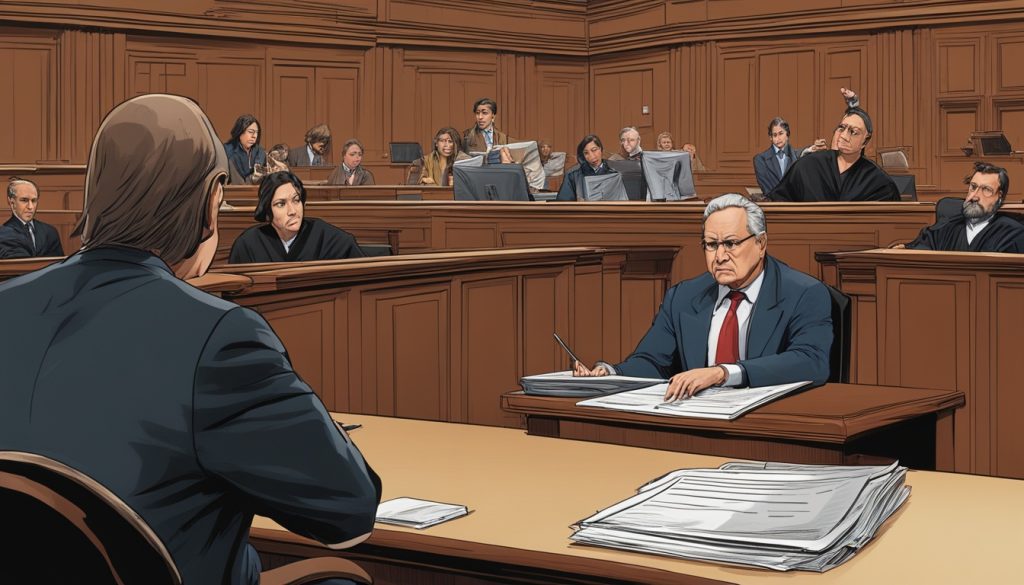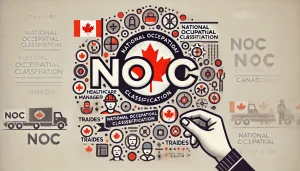Have you recently received a speeding ticket in Ontario? If so, you’re probably wondering what your options are and how you can avoid paying a hefty fine or accumulating demerit points on your driving record. The good news is that there are ways to fight a speeding ticket in Ontario and get the charges reduced or even dismissed. In this article, we will explore proven tips and strategies for pleading for a reduced fine, defending your case, and increasing your chances of a successful outcome. So, if you’re wondering how to fight a speeding ticket in Ontario, keep reading to find out more!
Never Outright Plead Guilty
Getting an Ontario traffic ticket doesn’t mean you have to admit guilt. In fact, you have the right to a trial. This lets you question the ticket’s validity in court. Remember, in law, you’re innocent until proven guilty. So by pleading guilty at first, you give up your chance to fight the ticket.
You Have the Right to a Trial
If you’re up against Ontario traffic laws, going to trial is key. It forces the prosecution to show solid proof of your violation. This step is crucial because it lets you challenge the speeding ticket defense strategies. You might even get the ticket dropped or the penalties reduced.
Remain Silent and Respectful
When you’re dealing with the ticketing officer, staying quiet and being polite is wise. Don’t feel like you have to answer tricky questions like “Do you know how fast you were going?” Your answer should be, “I don’t know, officer.” This keeps you from saying anything that might hurt your case later, especially when challenging radar evidence.
Select Option 3 for a Trial Date
To contest your ticket, choose Option 3 on the ticket’s back and send it back. This action asks for a trial date. You can either do this in person at the courthouse or by sending a certified letter to book your trial.
Request Disclosure of Evidence
Challenging a speeding ticket in Ontario starts with asking for the officer’s notes, also known as Disclosure. This info is key in building your defense. It shows how your speed was measured, among other details.
Study the Officer’s Notes
Reading the officer’s notes can uncover mistakes or weak spots in their case. This can be a big help when you go to court. Knowing the Disclosure well will help you plan a strong defense.
Prepare Your Defense
Having the Disclosure means you can start getting ready for your case. You might need to find your own evidence to challenge what the officer says. Also, it’s smart to learn about Ontario traffic laws and defense strategies. This can help you come up with good ways to fight the radar evidence.

Attend First Attendance Meeting
The next step is to meet with the Prosecutor for the First Attendance meeting in Ontario. This is your chance to talk about a plea bargain. It might help you get a smaller fine or avoid demerit points.
Consider a Plea Bargain
At the meeting, you can ask the Prosecutor about a plea bargain. A plea bargain lets you plead guilty to a lesser charge. This could be a lower speeding offense instead of careless driving. It helps to lower your penalties and demerit points.
Evaluate Your Options
You don’t have to decide right away about the plea bargain. It’s good to think about what’s best for you. By accepting a plea bargain, you skip the trial, but you get a conviction on your record. This might make your insurance rates go up. But if you don’t, you may need to face trial to try and get the ticket dismissed.
It can be tricky to understand Ontario’s traffic court system and what could happen. By really thinking about your options and considering a plea bargain, you can choose what’s right for you.
Hire a Professional Paralegal
Dealing with a speeding ticket in Ontario can be tough. If you’re facing high fines or demerit points, it might be wise to get professional help. A skilled paralegal knows how to tackle these issues. They can save you time and stress.
For High Fines and Demerit Points
Got a pricey ticket or lots of demerit points? A paralegal could help you out. They understand the legal system. With their expertise, they might lower the fines or dismiss the ticket. Their experience in Ontario’s court and traffic laws is key.
Experienced Representation
Specialized paralegals offer top-notch help when it comes to fighting speeding tickets in Ontario. They find strong defenses, gather proof, and present your case well in court. Their support boosts your chances of a positive result. This can help keep your driving record clean and your insurance rates from going up.

Understand Speeding Ticket Penalties
It’s important for Ontario drivers to know about speeding ticket penalties. These can affect your wallet, driving record, and insurance rates. Knowing the Ontario traffic laws helps you make better choices when you get a ticket.
Fines and Demerit Points
When you get a speeding ticket in Ontario, you face a fine. This fine can be between $60 and $1,000. How much you pay depends on how fast you were going over the speed limit.
Demerit points also come with speeding tickets. Demerit points range from 3 to 6. They stay on your record for two years. Too many points can cause you more trouble.
License Suspension Risks
Getting too many demerit points can even lead to a lost license. If you collect 9 or more points in two years, you could lose your license for 30 days. For new drivers with G1 or G2 licenses, it only takes 6 points.
It’s key to avoid these penalties by driving carefully. This keeps your record clean and saves you from these serious issues.
How to Fight a Speeding Ticket in Ontario?
The first step is to look at your choices. You can choose to pay the fine, or plead guilty but explain. Another choice is to meet with the prosecutor, or even dispute the ticket. Make sure you know all the possible penalties and what’s at stake before deciding. Speeding tickets can lead to more than just a fine. Think about all outcomes carefully. Take your time to understand before picking the best option for you.
Demerit Points vs. Insurance Impact
In Ontario, speeding tickets impact more than just your wallet and demerit points. Insurance providers are a key part of the picture, handling the long-term effects. Knowing the difference between the demerit points and insurance issues is very important.
Insurance Companies Consider Convictions
When it comes to your insurance rates, demerit points aren’t the only thing they check. Insurance companies look at a lot more than just that. They focus on whether you’ve been convicted of speeding. If you pay the ticket, are found guilty in court, or admit you did it, that counts. This happens even if you don’t get any demerit points.
Demerit Points Lead to Suspensions
Demerit points, though not the main focus for insurance, still matter. Too many demerit points from speeding can lead to your license being suspended. This is especially true for new drivers. It can lead to more problems, like higher insurance costs. In some cases, you might not even find a company willing to insure you.

Challenging a Speeding Ticket in Court
Challenging a speeding ticket in court can be the best choice. It allows you to keep your demerit points low and your insurance rates down. This is because your demerit points and rates are set until the case is resolved when you plead not guilty.
By setting a trial date, you might not have to pay the fine yet. You can also keep a clean driving record for a longer time. Plus, it gives you a better chance of winning your case and avoids an immediate license suspension.
Set a Trial Date
To start, you need to ask for a trial date in Ontario. Just pick Option 3 on the back of your ticket and send it to the court. This step helps you keep your demerit points and insurance rates stable.
Delay Conviction and Fine
Choosing not guilty gives you more time before any fine or conviction. This extra time is great for getting your defense ready. It might even lead to the charges being dropped or lessened.
Options During Trial
At the trial, you can show why you’re innocent. This might include questioning the radar’s accuracy or the officer’s view. If your defense is strong, the court might rule in your favor. This could lead to the ticket being thrown out or the charges lessened. This would mean no lasting record of the offense for you.

Paying the Speeding Ticket
When you pay a speeding ticket, a lot changes right away. First, according to the ontario traffic laws, you get a record of the ticket fast. This puts a mark on your driving history straight away.
Also, you might get some demerit points right after you pay. These demerit points are added to your license right away.
Your insurance rate impact can increase a lot, too. Your conviction is shared with your insurance company. It might make your premiums higher for up to three years.
If you’re still a new driver (like G1 or G2), things are riskier. Getting demerit points could lead to losing your license. This makes it very hard to keep driving.
Pleading Guilty with Explanation
If you choose to plead guilty with an explanation in a traffic case, you stand in court before a judge. The judge can help by potentially reducing the fine, but they can’t erase the ticket or its outcomes. You’ll also get the ticket on your driving record immediately, and face demerit points on your license.
This info will also go to your insurance company. They will use it when setting the rates you pay for the next three years. It’s especially tough for new drivers, like those with G1 or G2 licenses. They could have their licenses suspended if they get too many demerit points.
Early Resolution and First Attendance
When you get a traffic ticket in Ontario, you may hear about ‘early resolutions’ or ‘first attendance.’ The prosecutor’s aim in these meetings is to get the driver to admit wrongdoing. They may offer to lower the number of demerit points or the fine. But taking this offer means you will have a conviction on your record. This can make your insurance rates go up. If you end up with a lesser charge, the conviction will still affect your insurance for up to 3 years. Going to a first attendance or meeting with the prosecutor might not help you. Many traffic court procedures ontario get dropped or reduced during a trial.
Conclusion
Fighting a speeding ticket in Ontario means using different methods. First, you can ask for details and go to the first meeting. Also, consider getting help from a paralegal or challenging the ticket in court. It’s important to know about the fines, impact on insurance, and demerit points first. This knowledge helps a lot before you decide what to do.
Knowing the Ontario traffic laws and ticket fighting process is important. When deciding what to do about your ticket, think about contesting it, bargaining, or getting legal help. Your aim is to lessen how it affects your record and insurance. So, think over the choices carefully to make the best call and protect your rights.
Making a choice about your speeding ticket in Ontario is not easy. It takes thinking and knowing the risks well. To do the best, act early and look at all your options. This way, you can hope for a good result and keep a clean record. This is key to lower insurance costs and not losing your license. Always remember, doing well in fighting your ticket means being well-informed, hardworking, and standing up for what’s right.
FAQ
1. What is the best defense for a speeding ticket in Ontario?
Never immediately say you’re guilty of an Ontario traffic ticket. You have the right to defend yourself in court. Remember, the law states you’re innocent until proven guilty. They must prove your guilt.
2. Is it worth fighting a reduced speeding ticket in Ontario?
Yes, fighting a speeding ticket in Ontario is often worth it, even if the charge is reduced. Pleading not guilty allows you to delay or avoid the fine, keep your record clean for longer, and increase your contesting chances. It also helps avoid immediate suspensions.
3. How do I get a speeding ticket dropped in Ontario?
To get a speeding ticket dropped in Ontario, ask for the officer’s notes, meet the prosecutor, and weigh plea bargain or fighting in court. Opting for a trial is usually the best strategy.
4. How much does it cost to fight a speeding ticket in Ontario?
Costs to fight a speeding ticket in Ontario vary. It might be a good move, especially with high fines or suspension risks. Sometimes, a professional paralegal is a wise investment for court representation.
5. How do I defend a speeding ticket in Ontario?
To defend against a speeding ticket in Ontario, be quiet and polite at the stop. Choose Option 3 on the ticket for a trial. Ask for officer notes and meet with the prosecutor. Consider hiring a paralegal for your defense in court.
6. Do I need a lawyer for a speeding ticket in Ontario?
You don’t need a lawyer for an Ontario speeding ticket, but a paralegal might be smart, especially for big fines or suspensions. They offer skilled help and can boost your success chances.




